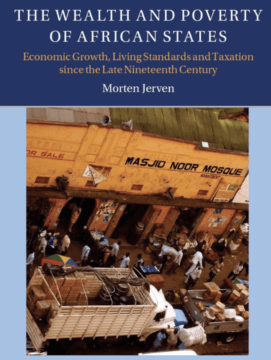 Alden Young in Phenomenal World:
Alden Young in Phenomenal World:
On May 1, 2014, Nigeria’s then-president, Goodluck Jonathan, addressed a crowd of workers in the country’s capital Abuja. He declared that “the challenge of the country is not poverty, but redistribution of wealth.” The prompt for his comment was a report issued only a few days prior, which labeled Nigeria, Africa’s most populous country, as one of only five nations that are home to two-thirds of the world’s population living in extreme poverty. Rejecting the categorization of Nigeria as a poor country, President Jonathan pointed to the country’s Gross Domestic Production (GDP), which he declared was “over half a trillion dollars.” Moreover, the economy, he maintained, was “growing at close to 7 percent.”
It was only a week before the president’s address that the official figure for Nigeria’s GDP had been significantly revised. The first reexamination of the structure of the Nigerian economy since 1990 showed an increase in the country’s 2013 GDP by 89 percent. Scholars were surprised by the dramatic growth in the banking and telecommunications sectors and the significant decline in the relative size of the hydrocarbon sectors.
With little outside recognition, the Nigerian economy had transformed itself in the space of a couple of decades.
More here.
